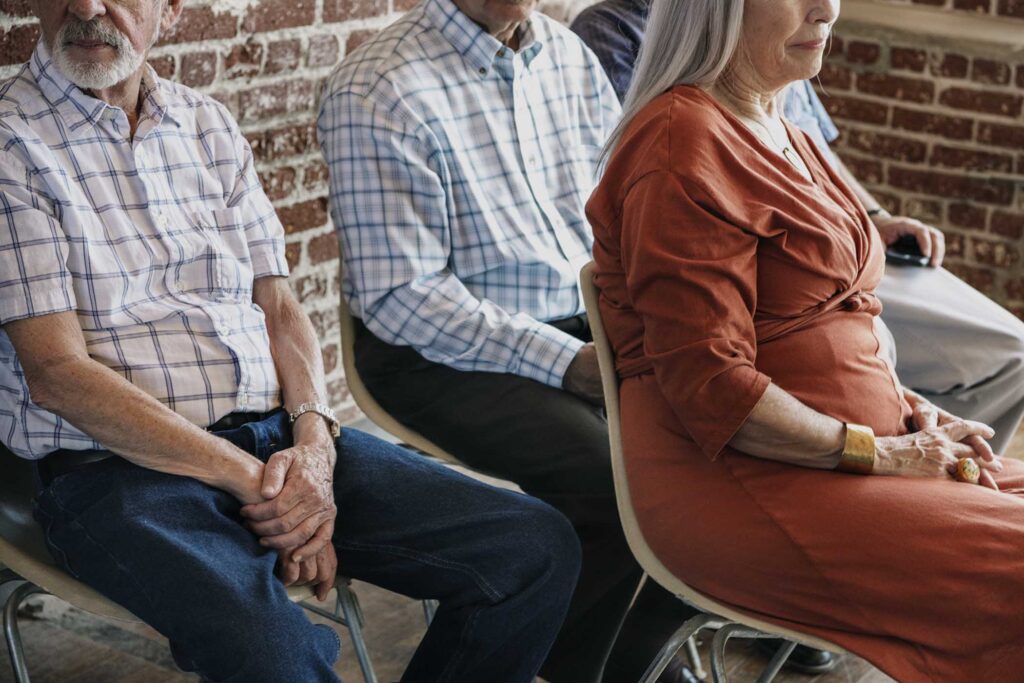The Role of Guilt & Shame in Binge Eating
To begin to understand the role of guilt and shame in binge eating and emotional eating, we also need to understand the binge-restrict cycle. The binge-restrict cycle is a loop we can find ourselves stuck in when dieting, living by food rules and restricting ourselves both psychologically and physically. The binge- restrict cycle often looks something like this:
Binge:
An event, emotion, availability of food, etc. triggers a binge. It could be anything from stress, to physical hunger, to wanting to avoid an emotionally difficult sensation.
Guilt and Shame:
The emotional backlash begins, you knew you “shouldn’t” keep treats in the house, you can’t be trusted (or other lies diet culture has instilled). You’ve broken a food rule and feel terrible for doing so. Understandably, these emotions suck, you don’t want to experience this again.
Resolve to do better:
In an effort to relieve the guilt and shame you decide to do better, be stronger, have more motivation, discipline, etc.
Restriction:
Whether it be certain foods you do not allow yourself to eat, portions you can’t have, or foods you should be eating, you mentally and/or physically restrict yourself to make up for the previous binge.
Binge:
The cycle continues, after restricting hunger and a trigger will cause another binge.
We get caught in this cycle for many reasons and most often one of the biggest instigators is diet culture. Messages we have heard time and time again create an internalized belief that to be a good, worthy, valuable person is to be a healthy person, a disciplined person, a thin person. If you’re not, if you allow yourself sugar, carbs, dairy (or whatever “bad” food we’re avoiding at the time), if you have a portion bigger than your partner, or if you’re hungry- you must not be a good, healthy, valuable person. Enter guilt and shame.
What is guilt and shame and why are they such persuasive emotions?
Guilt is the feeling we get when we feel we have done something wrong. Keyword being “done”, as in the past. There’s nothing we can do to change the past, yet this emotion motivates us to do something different next time, make amends or fix it. A helpful emotion when learning right from wrong. Unhelpful when thinking about unsustainable, restrictive food rules.
Shame is “the intensely painful feeling or experience of believing that we are flawed and therefore unworthy of love and belonging—something we’ve experienced, done, or failed to do makes us unworthy of connection (Brown, 2013).
So guilt makes us feel like we have to make amends and do better next time (choose the apple over the brownie) and shame makes us feel like we are fundamentally flawed (you’re not good enough). No wonder a reprieve from these two challenging feelings is to jump back into the routines fed to us through diet culture- particularly when they are tied to moral attributes like goodness, cleanness, health, etc.
Guilt and shame are the foundational cogs in the cycle that push us back into restriction and eventually another binge. If we did not feel guilty or ashamed for a binge, the need to restrict wouldn’t occur and the cycle could be broken…
Simple right?
Yes and no. Remember diet culture is a big contributor to the guilt and shame we feel, it helps create and maintain food rules and it always has a different diet or magic pill to offer as an easy entry point back into restriction. Additionally, the binge-restrict cycle is nuanced and individual to each person. What triggers one person, doesn’t necessarily trigger another, and what helps you break free is unique to you and what is most meaningful. For some to beat the feelings of guilt and shame they feel after a binge is to start by exposing diet culture and its harmful messages. Who says I “can’t” eat after 7:00 PM?! For others it’s actively rejecting and choosing not to engage in physical/ psychological restriction. And for most, it is a combination of the two.
If you’re ready to reduce the guilt and shame and in turn break free from the binge-restrict cycle consider taking some of these first steps:
- 1. Expose and eventually reject diet culture norms. Recognize that diet culture is fueled by and maintains fatphobia- the person who says you can’t eat that, in this way, at that time is the person saying fat is bad, fat is to be feared. Take back the narrative.
- 2. Feed yourself. Remember, a part of the binge-restrict cycle is physical hunger and physical cravings. You’re not bad for being hungry or craving something, you are human.
- 3. Understand your triggers. Ask why and use curiosity to examine the thoughts and feelings behind the binge behaviour.
- 4. Reject restriction, both mentally and physically. No matter how big the binge, you always deserve to eat the next meal. No matter how “bad” the food you binged on, you always deserve to eat what you want and need.
- 5. Explore the guilt and shame. Where did they originate, what core belief are they upholding? Talk to one of our therapists to do so in a non-judgemental, safe place.



References:
Brown, B. (January 15, 2013). Shame vs. guilt. Brene Brown. Retrieved October 31, 2024 from https://brenebrown.com/articles/2013/01/15/shame-v-guilt/



